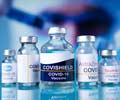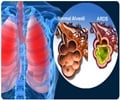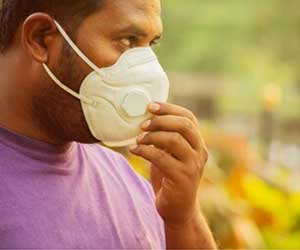One-fourth of patients hospitalized for the acute respiratory distress syndrome (ARDS) associated with severe COVID-19 infections are prone to distinct disease presentation.
Highlights:
- Two distinct phenotypes of COVID-19-associated ARDS that had differences in their responses to disease discovered
- Patients with the distinct phenotypes are at increased death risk
- Acute respiratory distress syndrome (ARDS) is a lung condition where the patient suffers from sudden breathlessness
Their findings are published in EClinicalMedicine, an open-access journal of The Lancet group.
ARDS is a catch-all term for lung injury that can arise from many different conditions such as pneumonia, severe influenza, trauma, blood infections or inflammation of the pancreas.
The syndrome can be life-threatening and may require patients to be put on mechanical ventilation, but it has been difficult for clinicians to develop effective therapies because of the wide spectrum of causes associated with it.
Pulmonary care experts typically base treatment decisions for patients with ARDS on how their bodies and immune systems respond to disease. Prior studies have suggested that some patients have what is called a "hyperinflammatory" phenotype, because their bodies respond to disease or injury by unleashing a flood of cytokines (proteins released in response to inflammation) and other substances to fight the disease. Several studies have shown that patients with the hyperinflammatory phenotype have about a 20% greater risk for death compared with other patients.
"The motivation for our work is that if we can identify subsets of patients with different biochemical characteristics, and then those patients respond differently to treatment or have different clinical outcomes, we would be one step closer to a more mechanism-based understanding of ARDS," she says.
Their results suggest that disruption of the normal regulation of blood vessels and circulation could be a key feature of critical illness, severe symptoms, and death related to COVID-19 infections, the researchers write.
Source-Eurekalert















